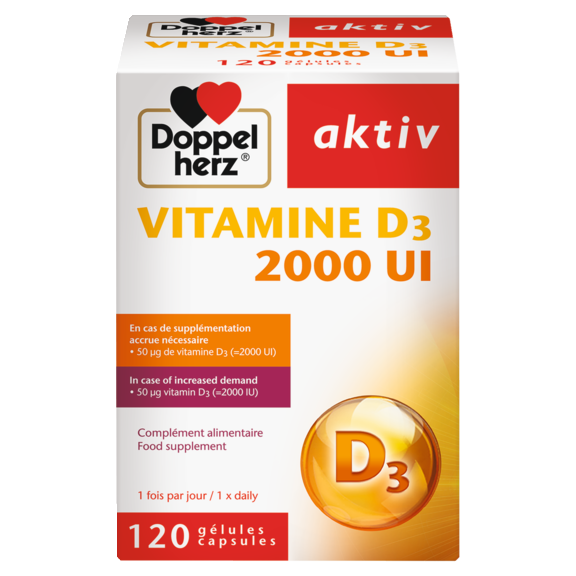The “sunshine vitamin”
Vitamin D is actually not a vitamin at all. It is rather similar to a hormone that is produced by the body itself. It requires the sun to do so: the exposure of UV light on the skin leads to the formation of vitamin D3 in the skin cells, and by means of further developmental steps in the liver and kidneys it leads to the formation of the active substance, called calcitriol.
Vitamin D has a key function for health because it is involved in thousands of regulatory processes in the human somatic cells.
For healthy bones:
Vitamin D3 is widely known as an “integration helper” for calcium in the bones and teeth, and facilitates integration in the bone structure. Vitamin D is therefore necessary so that calcium can be absorbed by the body at all.
For the function of the immune system:
But vitamin D is also absolutely essential for the immune system: The immune defence is only mobilised if it is present in sufficient quantity so that it can combat undesirable germs.
Vitamin D for the muscles:
Vitamin D is essential for normal muscle function, including muscle strength. It also regulates the coordination of muscles; for example, this is required for a secure gait.
An inadequate supply of vitamin D is widespread
A walk or a stay outdoors for 10-15 minutes every day is highly recommended for the vitamin D3 synthesis of the skin through sunlight. Particularly with senior citizens the requirement is substantially increased.
In 2008, the German “National Consumption Study” ("Nationale Verzehrsstudie") showed that 91 % of women and 82 % of men are not sufficiently supplied with vitamin D.
Alone due to our geographical location in Germany the sun is not high enough in the sky between October and April to supply our skin with the necessary UV-B rays.
Skin tone also plays a role: dark or tanned skin synthesises less vitamin D than light skin, because the pigment melanin competes with vitamin D production.
It is also noticeable that many people, especially the elderly, have particularly low vitamin D levels. The self-production of vitamin D3 decreases with increasing age, so that an inadequate supply of vitamin D3 can particularly exist among senior citizens. That is why the regular consumption of food rich in vitamin D is highly advisable.
Vitamin D is only found in high quantities in relatively few foodstuffs. Unfortunately, precisely these foodstuffs are often consumed to a lesser extent in this country. Dietary supplements are also recommended in order to regulate the vitamin D balance.


